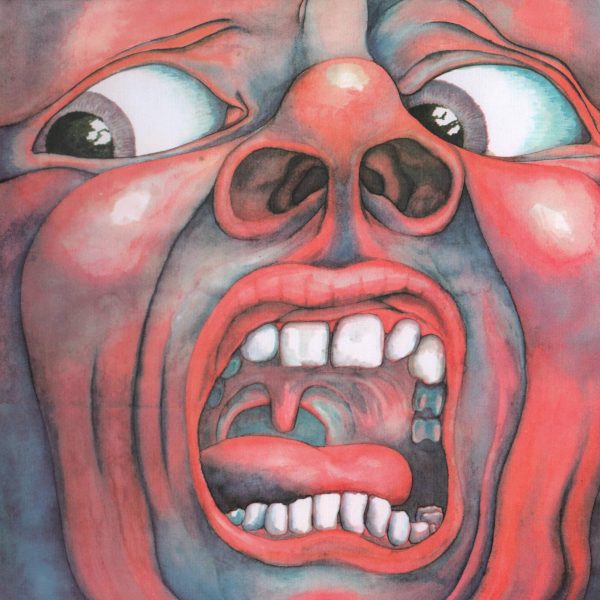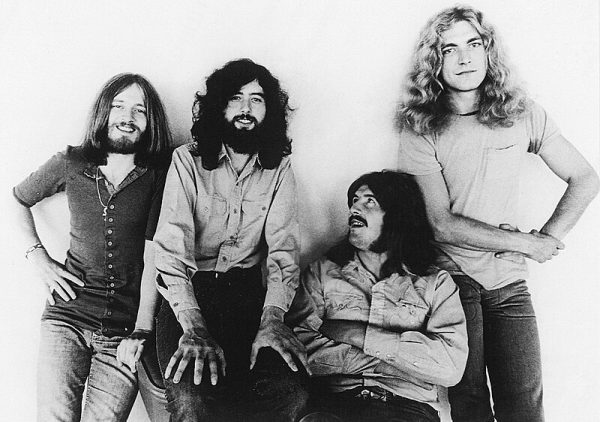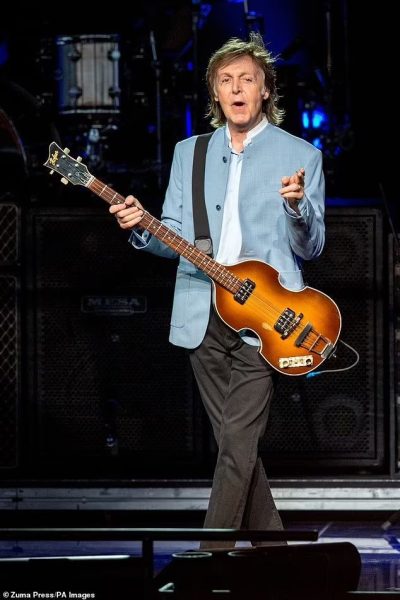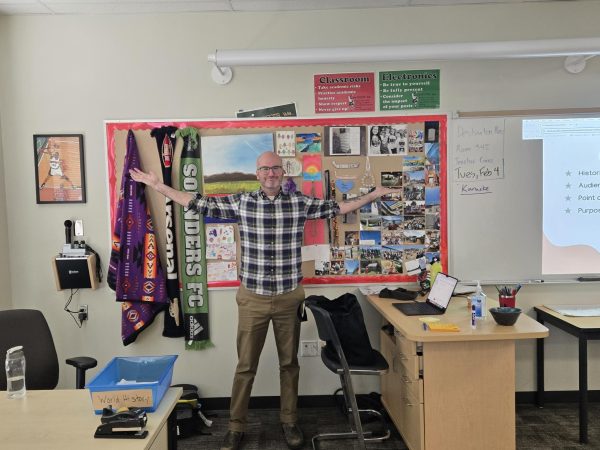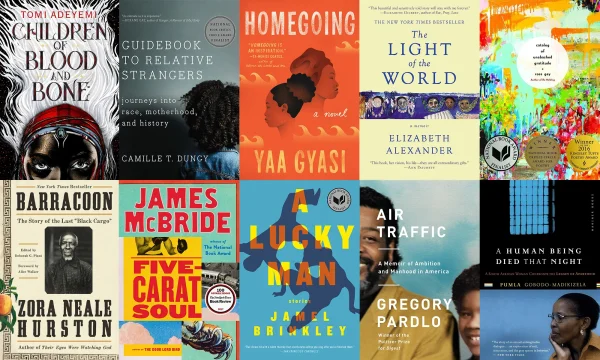The Best Movies I Watched This Summer
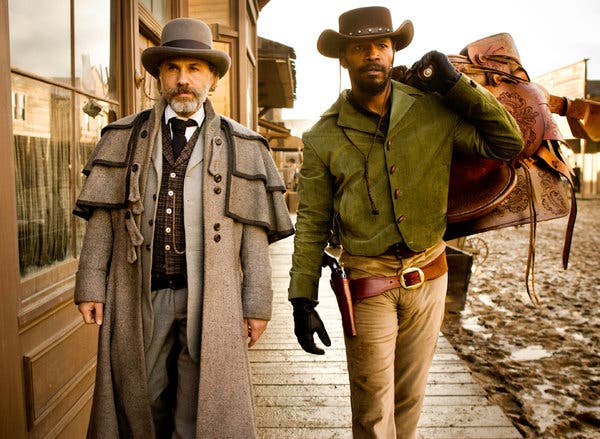
Django Unchained
2020 has been a poor year for movies, to say the least. With coronavirus shutting down movie theaters and production crews throughout the country, and many blockbuster films’ release dates being pushed back until next year, I, like many others, have turned to a plethora of streaming services now available. From March 10th, the beginning of quarantine, to September 2nd, the first day of school, I was able to watch a little over 100 films. These ranged from the (still) brilliant and shocking 1925 silent horror film The Phantom of the Opera, all the way to the abysmal 2007 remake of the musical film Hairspray. Today we are going to focus on the good, so, here are (in no particular order) the best films I watched this summer.
Django Unchained – dir. Quentin Tarantino (2012)
After several years of wanting to dive into Tarantino’s works, I finally was able to with Once Upon A Time… In Hollywood. I immediately realized his style, obviously the extreme, over-the-top, and often comedic violence, the slow-building tension, and the masterful dialogue. I followed up Once Upon A Time with The Hateful Eight, another slow, tension-building, violent story that I thoroughly enjoyed. Then I came to my favorite of the three: Django Unchained. Jamie Fox stars as a slave, Django, who is freed by a German bounty hunter in the pre-civil war American south. They set out collecting bounties, and eventually attempting to rescue Django’s wife from her brutal owner. The film generally fits with the rest of Tarantino’s style, lots of over-the-top violence and great dialogue. But the best part of this film is the effectiveness in which it builds tension, and delivers a satisfying release. It’s got some pacing issues, but the characters are brilliant, and we even get to see Tarantino himself do a terrible Australian accent. If you haven’t seen a Tarantino film, this is a great introduction, and I highly recommend it.
Saving Private Ryan – dir. Steven Spielberg (1998)
This next one is not for the faint of heart, or stomach. While the violence in Tarantino’s films are often so over-the-top that they play as comedic, the violence in Saving Private Ryan is brutal and heart wrenching. The opening scene is of the Omaha beach landings in D-Day during WW2. It is incredibly shot, and incredibly hard to watch. The rest of the film follows a patrol of American soldiers throughout France to reach Private Ryan and return him to his family after the death of all three of his brothers. The film is gritty, gruesome, but most importantly, captures the human torment of war. Much like Schindler’s List, this film won’t make you cry, but is heart wrenching on a whole other level.
Parasite – dir. Bong Joon-ho (2019)
This is probably one of the smartest movies I’ve seen in awhile. Even with the title, a parasite being an outside force that slowly takes something over from the inside, the film shows its wit and intelligence. This Korean film tells the story of a poor family securing jobs for themselves at a wealthy family’s house as their servants. The story evolves throughout the film, with each twist and turn bringing it to the next level. It’s crazy, creepy, and will keep you on the edge of your seat the entire time. Yes, it is in Korean, but the story is still easy to follow, even if you haven’t seen any non-English speaking films before. Highly recommend, this film deserved its Best Director, Screenplay, and Picture Oscars.
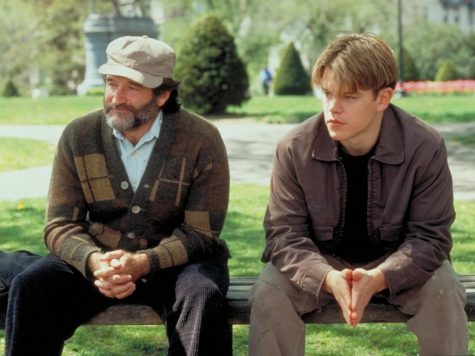
Good Will Hunting – dir. Gus Van Sant (1997)
What if the smartest man in a room full of scientists was the one cleaning the floors? And what if he was Matt Damon? And what if his counselor was Robin Williams, and his best friend Ben Affleck? This film answers those questions, and not all of them are straightforward. It questions what it means to be a “genius,” tackles themes about love and friendship, and still manages to be humorous and fun. The acting is perfect, this is probably Robin Williams’ best dramatic performance, and one of Matt Damon’s best as well. While the ending is bittersweet, it still wraps up the story in an emotional way.
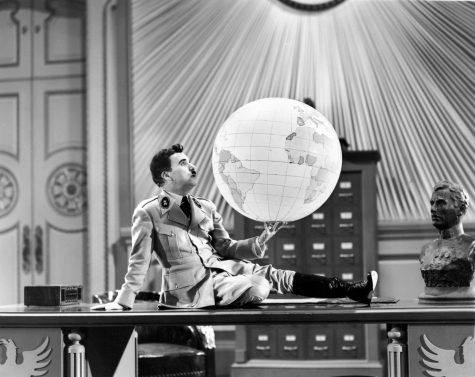
The Great Dictator – dir. Charlie Chaplin (1940)
Okay, just indulge me for a second. I know this film is 80 years old, but hear me out. Charlie Chaplin plays both a Jewish barber who’s the doppelganger of the crazed dictator Adenoid Hynkel, and the dictator himself. The whole film is a parody of Hitler and other dictators who seek control over others. The script is absolutely brilliant, and Chaplin is amazing. This was his first sound film, as he had spent most of his career making silent comedies. Some of that comes through in his hilarious physical comedy, but the best part of this film is the ending. Chaplin gives a heart wrenching and chilling speech on dictators, unity, and the goodness of humanity. It brought me to tears, and is certainly one of the greatest movie monologues of all time. The film drags in places, and it is a bit long overall, but the ending is totally worth it. It is highly relevant and deserves a watch.
Stand By Me – dir. Rob Reiner (1986)
This was one of those rare films that changed me. I was incredibly surprised too. The basic premise is based on a Stephen King short story called The Body, where four young boys walk along a railroad to find a dead boy’s body. The film stars child actors Wil Wheaton (best known as Wesley Crusher in Star Trek), River Phoenix (acclaimed late actor and brother of Joker star Joaquin Phoenix), Corey Feldman (The Goonies and Gremlins), and Jerry O’Connell. The acting is probably the weakest point, but the kids’ on-screen chemistry still sells the performances really well. The story is also brilliant and moving. There are themes about life, growing up, friendship and what it means to be someone’s friend. It has a sort of sorrowful nostalgia, as well as being playful and funny. It is one of the most charming and challenging films I’ve ever seen, a must-watch.
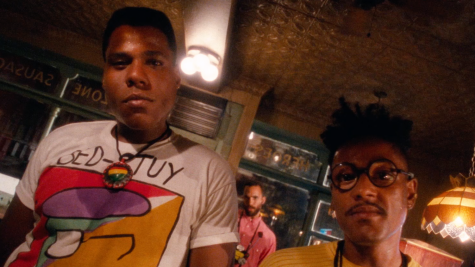
Do The Right Thing – dir. Spike Lee (1989)
Possibly the most relevant film on this list, Spike Lee’s third film did not disappoint. First off, everyone needs to see this movie. Like I said, it is extremely relevant and important in our country at the moment. The film depicts a Brooklyn neighborhood where racial tension has been growing between an Italian restaurant and its predominantly black neighborhood. As well as having a great story and a great script, the directing is extremely creative and stylized. Spike Lee has a very distinct approach to filmmaking, one where he utilizes camera angles and shot composition to its fullest extent. The ending of this film is familiar to those of us living in Seattle, and is still incredible.
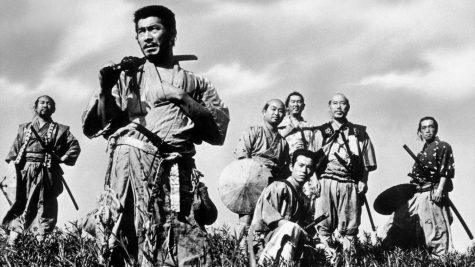
Seven Samurai – dir. Akira Kurosawa (1954)
You simply can’t overstate the impact that Japanese director Akira Kurosawa has had on film history. His career spans over 50 years, in which he made 30 brilliant films, inspiring directors like George Lucas, Steven Speilberg, Martin Scorcese, and Francis Ford Coppola, not to mention generations of Japanese filmmakers, for which he practically defined the medium. Star Wars is basically The Hidden Fortress in space, and his genre-defining samurai films were adapted into many genre-defining westerns. Seven Samurai is his magnum opus, a brilliant story of poor farmers that hire samurai to protect their village from bandits, a plot structure that was used in an episode of The Mandelorian. The directing is obviously the main draw here, Kurosawa’s shot composition and blocking is stunning, and the battle sequences are absolutely brilliant. It is a bit long, but well worth the time. I recommend this film, and the rest of Kurosawa’s work very highly.
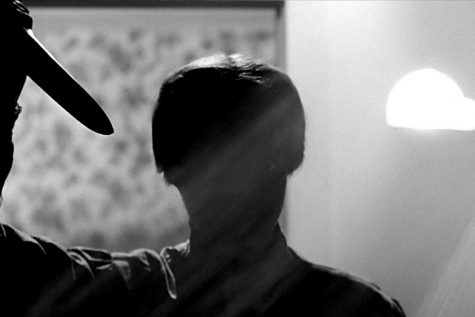
Psycho – dir. Alfred Hitchcock (1960)
Psycho, along with The Shawshank Redemption, are the only two “perfect” movies I have ever seen. Or, they are at least so good that I didn’t notice any flaws. The story is again simple. After a woman is murdered in a hotel shower, in one of the most famous movie scenes of all time, her sister and boyfriend search for her and the $60,000 she stole. What they find is even more shocking and deadly. This film is Hitchcock at his best. There is perfect suspense, tension and release, the editing is flawless, the acting never falters, the cinematography is (if you care) perfect, the music is absolutely iconic, and of course the directing is brilliant. The most shocking thing of all is that this film is still scary and disturbing 60 years after its release.
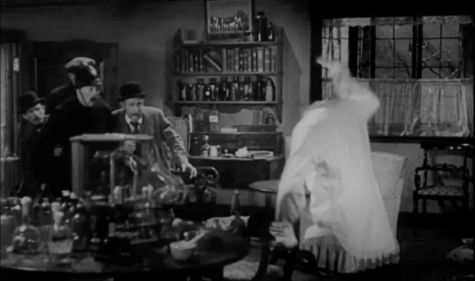
The Invisible Man – dir. James Whale (1933)
Many of you are probably a little confused about the title, as a new The Invisible Man came out this year. No, I am way too scared of horror films to watch that version. As one of the original Universal Classic Horror monsters, the 1933 Invisible Man follows a very different story, and is actually more of a horror-comedy. Director James Whale, of Frankenstein and Bride of Frankenstein fame, was a master of mixing horror and comedy. The story is based on the novel of the same name by H.G. Wells, and follows a scientist who has invented a drug that turns him invisible. The slight side effect is that the drug also makes him crazy, and he terrorizes a snowy village. The voice and laugh of the Invisible Man was also one of the main inspirations for Mark Hamil’s Joker. The main draw for me in this film were the special effects. To put it simply, they make a man disappear…in 1933. 40 years before the advent of computer visual effects, you see a man unwrap bandages from his face only to reveal there’s nothing underneath. And then, as in the picture above, a bodiless shirt chases after some policemen. And then a bicycle rides itself down the street. I don’t think my jaw has ever dropped faster than while watching this movie. Scene after scene you’re asking, “how did they do this? They must have discovered magic, or made contact with aliens!” But no, it’s all made through the magic of film. More than any other film, The Invisible Man shows the ingenious and creativity of filmmakers. As well as being technically impressive, the story and characters are funny, and there is real tension at times. It will probably seem dated to many, but if you can get past that, you will laugh, probably not cry, but still be amazed.

The Departed – dir. Martin Scorcese (2006)
On a very, very different note, we have a Martin Scorcese crime drama. This film stars another cast of brilliant actors: Matt Damon, Jack Nicholson, Leonardo DiCaprio, Martin Sheen, Mark Whalberg, and Alec Baldwin for good measure. The plot follows two main characters, one is a police informant in a crime mob, the other is a rat in the police force reporting to the mob. The story itself is brilliant. It has all the twists and turns you love and expect from Scorcese, as well as his trademark slow build of tension throughout the film that leads to a figuratively “explosive” ending. The directing is creative and very intelligent, the acting and script are perfect; you are completely immersed in this world and care about the characters. The film is, as you expect, violent, sexual, and, according to IMDb, has 237 uses of a certain 4 letter word starting with “f.” However, you will be on the edge of your seat the entire time, and I highly recommend it.
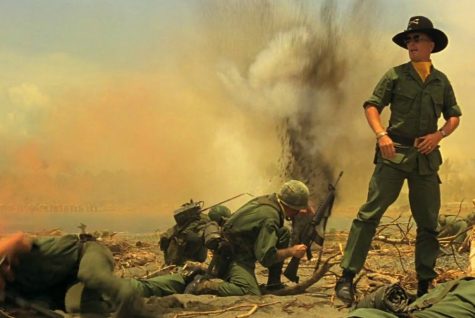
Apocalypse Now – dir. Francis Ford Coppola (1979)
Over the summer, I watched four films considered to be the best Vietnam War films of all time: Platoon, Full Metal Jacket, The Deer Hunter, and Apocalypse Now. Suffice to say, Apocalypse Now came out on top. I think the main reason for this was because Apocalypse Now was unlike any war movie I’d ever seen. It had no answers, but that’s the genius of it; it’s not supposed to. To quote director Francis Ford Coppola, “My film is not a movie. My film is not about Vietnam. It is Vietnam. It’s what it was really like. It was crazy…And little by little we went insane.” The film went $18 million over-budget, took 34 weeks in the Philippines to film, and had many, many problems. To sum it up, they paid Marlon Brando $4 million to shoot for 3 weeks without a completed script, their helicopters, which were on loan from the Philippine military, kept getting called off to fight a real war, Martin Sheen was struggling with alcoholism and suffered a near-fatal heart attack, and Coppola, after putting up his house, his cars, his Godfather profits, AND $15 million of his own money, really did eventually go insane. Finally, after two and a half years of editing, the film opened in the US on August 15, 1979, and won the Palme d’Or at the Cannes Film Festival. The basic concept of the film is loosely based on the Joseph Conrad novel, Heart of Darkness. During the Vietnam War, a patrol boat of US soldiers travels upriver to remove Col. Kurtz, who is rumored to have gone insane. The film plays out in several gorgeous, brilliantly shot sequences delving into the humanity and brutality of the Vietnam War. The battle sequences are stunning, and the film looks and sounds both beautiful and chaotic. The whole film is insane. It’s a goddamn masterpiece. I recommend this to anyone who can deal with brutal war films like this.
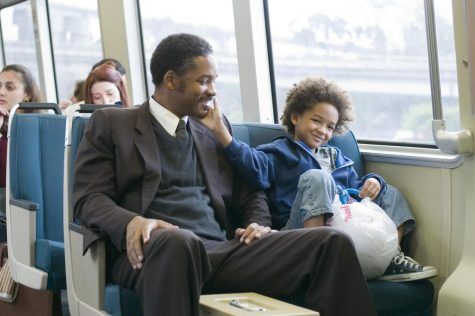
The Pursuit of Happyness – dir. Gabriele Muccino (2006)
I thought that we’d end on a happier note, voici The Pursuit of Happyness. The story is based on the autobiography of the same name by Chris Gardner. It follows Gardner (Will Smith), who has been kicked out of his house, lost his job, his wife left him, and he is now homeless. He finds an unpaid internship at a stockbroker firm and struggles to get by, and provide for his son. The film is sad and slow at times, but it is all worth it for the ending. It is, as the title suggests, extraordinarily happy. Besides the ending, Will Smith and his son Jaden deliver amazing performances, and I would say this is the best performance of Will Smith’s career. If you need a bit of happiness, which I daresay we all do right now, I would recommend this film.
Runner Ups: Free Solo, The Death of Stalin, Frankenstein (1931), The Phantom of the Opera (1925), The Imitation Game, Taxi Driver, Inglorious Bastards, Once Upon A Time… In Hollywood, Ikuru, Ran, Platoon, Full Metal Jacket, The Deer Hunter, Sherlock Holmes: A Game of Shadows, The Godfather Part II, The Blues Brothers, The Bridge of the River Kwai, 12 Monkeys, Ip Man, Knives Out, Uncut Gems



